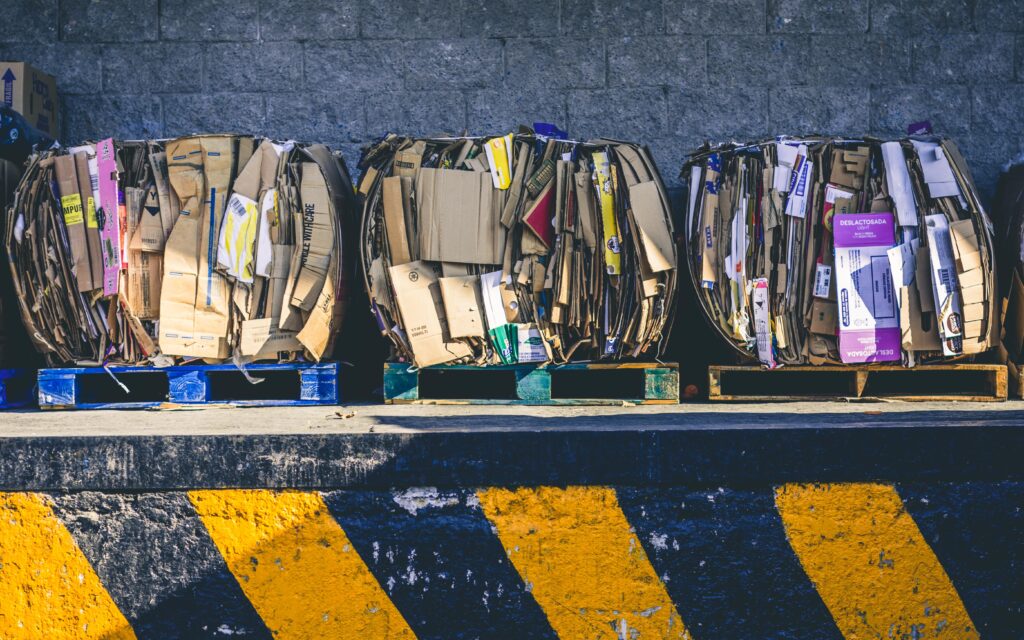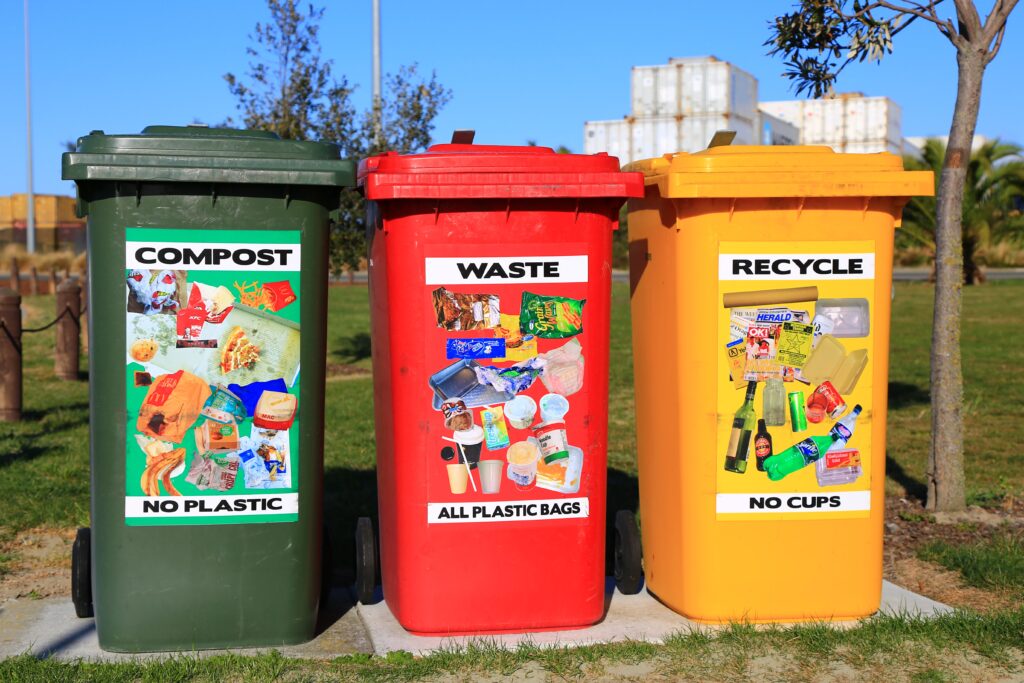How to Establish Waste Management for Off-Grid Living
Embracing off-grid living offers a unique opportunity to lead a sustainable, self-sufficient lifestyle. As more individuals and families venture into off-grid living, establishing an effective waste management system becomes paramount. This article aims to address the most frequently asked questions about waste management in off-grid living and highlight its significance in preserving the environment, promoting health, and fostering a sustainable off-grid lifestyle.

Why Do I Need a Waste Management System?
Since off-grid living is a lifestyle where individuals or communities are not connected to public utilities such as electricity, water, or sewage systems, the remote and pristine location of off-grid homes mean that a waste management system is essential to prevent environmental degradation, maintain hygiene, and promote resource conservation.
How Does Waste Management Benefit the Environment?
Waste management is crucial for preserving the environment. A well-designed system prevents pollution by segregating and disposing of waste responsibly. Composting organic waste and recycling materials help reduce greenhouse gas emissions, promote sustainable practices, and protect local ecosystems.
Can a Waste Management System Contribute to Resource Conservation?
Efficient resource management is essential for off-grid living since there can be very limited access to resources. A waste management system allows for composting organic matter, generating nutrient-rich soil for gardening, reducing the need for chemical fertilizers, and conserving valuable resources. By recycling materials the demand decreases for new materialistic products and can dramatically reduce overall resource consumption.
Does Waste Management Enhance the Aesthetic Appeal of Off-Grid Properties?
As it is often associated with picturesque natural settings, implementing a waste management system for off grid homes helps maintain the aesthetic appeal of the property by ensuring that waste is neatly sorted and compost piles are discreetly placed within the landscape. Done properly, this approach seamlessly blends waste management into the surroundings, preserving the rustic charm of off-grid living.
Does Waste Management Encourage a Sustainable Mindset?
A well designed waste management promotes a sustainable mindset among off-grid inhabitants. By actively participating in waste reduction, recycling, and composting, individuals become more conscious of their consumption patterns and waste generation. This heightened awareness often extends to other aspects of off-grid living, leading to more sustainable choices and practices.
Are There Cost Benefits to Establishing a Waste Management System for Off-Grid Living?
Establishing an efficient waste management directly impacts the cost of living in off-grid settings. By recycling and composting waste, off-grid residents can reduce their reliance on purchased fertilizers, waste disposal services, and new products. These cost-saving measures contribute to a more affordable and sustainable off-grid lifestyle.

What are the Steps I Need to Take to Create a Waste Management System?
Creating a reliable eco-friendly waste management system for an off-grid home involves implementing various strategies for waste reduction, recycling, and responsible disposal.
Below is a list of tools you will need and a step-by-step procedure to create a sensible disposal system.
Setting up a DIY waste management system for an off-grid home requires some basic tools and materials. Here’s a list of tools you’ll need:
- Shovel
- Wheelbarrow
- Bins or containers for sorting waste (e.g., compost, recyclables, non-recyclables)
- Compost bin or pile
- Recycling bins
- Trash bins
- Saw or cutting tool (if building enclosures)
- Drill and screws (if building enclosures)
- Marking tool (pencil or chalk)
- Gloves and safety gear
Step-by-Step Guide on How to Create a Waste Management System
- Assess your waste needs: Start by evaluating the types and quantities of waste generated in your off-grid home. Identify the different categories of waste, such as organic waste (food scraps, yard waste), recyclables (plastic, paper, glass, metal), and non-recyclables.
- Designate waste sorting areas: Choose a suitable location for waste sorting and disposal. Ideally, this area should be easily accessible from the kitchen and other parts of the home while being away from living spaces to avoid odors.
- Build or purchase waste bins: Based on your waste assessment, acquire bins or containers for each waste category. Consider building enclosures using the saw, drill, and screws to create more organized and aesthetically pleasing waste stations.
- Set up a composting system: If you produce organic waste, establish a composting system using a compost bin or pile. Add brown and green materials in layers, and turn the compost regularly to aid decomposition. Start a composting system (Price Range: $50-$150) for organic waste like food scraps, yard trimmings, and biodegradable
materials. Compost will be used as nutrient-rich soil for gardening. - Install recycling bins: Place designated recycling bins for paper, plastic, glass, and metal in the waste sorting area. Clearly label each bin to avoid confusion.Set up separate recycling bins (Price Range: $20-$50) for paper, plastic, glass, and metal to encourage recycling practices.
- Arrange trash disposal: Set up trash bins for non-recyclable waste. Try to minimize non-recyclable waste production and focus on recycling and composting. Opt for reusable containers for storing leftovers and groceries to minimize single-use plastic waste.
- Educate household members: Inform everyone in the household about the waste management system and the importance of sorting waste correctly. Teach others which items can be composted and recycled.
- Implement waste sorting routine: Establish a daily waste sorting routine to ensure that waste is properly sorted and disposed of regularly. Empty compost, recycling, and trash bins as needed, and transfer compost to your garden for use as fertilizer.
- Monitor and improve: Regularly assessing the effectiveness of your waste management system and making necessary adjustments can help to create an efficient system. By monitoring waste generation patterns and finding innovative ways to reduce waste and additional ways to increase recycling and composting leads to a more sustainable living environment.
- Practice responsible disposal: For waste that cannot be managed on-site, try to locate waste disposal facilities or recycling centers to ensure responsible and eco-friendly disposal.
- Include Advanced Waste-to-Energy Systems: Consider installing a biogas digester (Price Range: $500-$2,000) to convert organic waste into biogas for cooking and heating. By investing in a solar-powered trash compactor (Price Range: $1,000-$3,000) to compress non-recyclable waste, reduces trash volume and the decreases the need for frequent disposal.
Remember, waste management is an ongoing process that requires commitment and consistency. By implementing a DIY waste management system for your off-grid home, you can contribute to a sustainable and eco-friendly lifestyle.
Conclusion
By conducting a waste audit and assessment, reducing and segregating waste, opting for waste-to-energy systems, establishing responsible disposal, educating, monitoring and making others aware, and maintaining and improving best practices all make a significant difference on how efficient your waste management system is.
Off-grid living offers numerous benefits, such as independence, sustainability, and reduced environmental impact. However, to truly embrace a self-sufficient lifestyle, implementing an efficient waste management system is of the utmost importance. By incorporating waste management in off-grid living and individuals can contribute to environmental preservation, health, and overall sustainability.